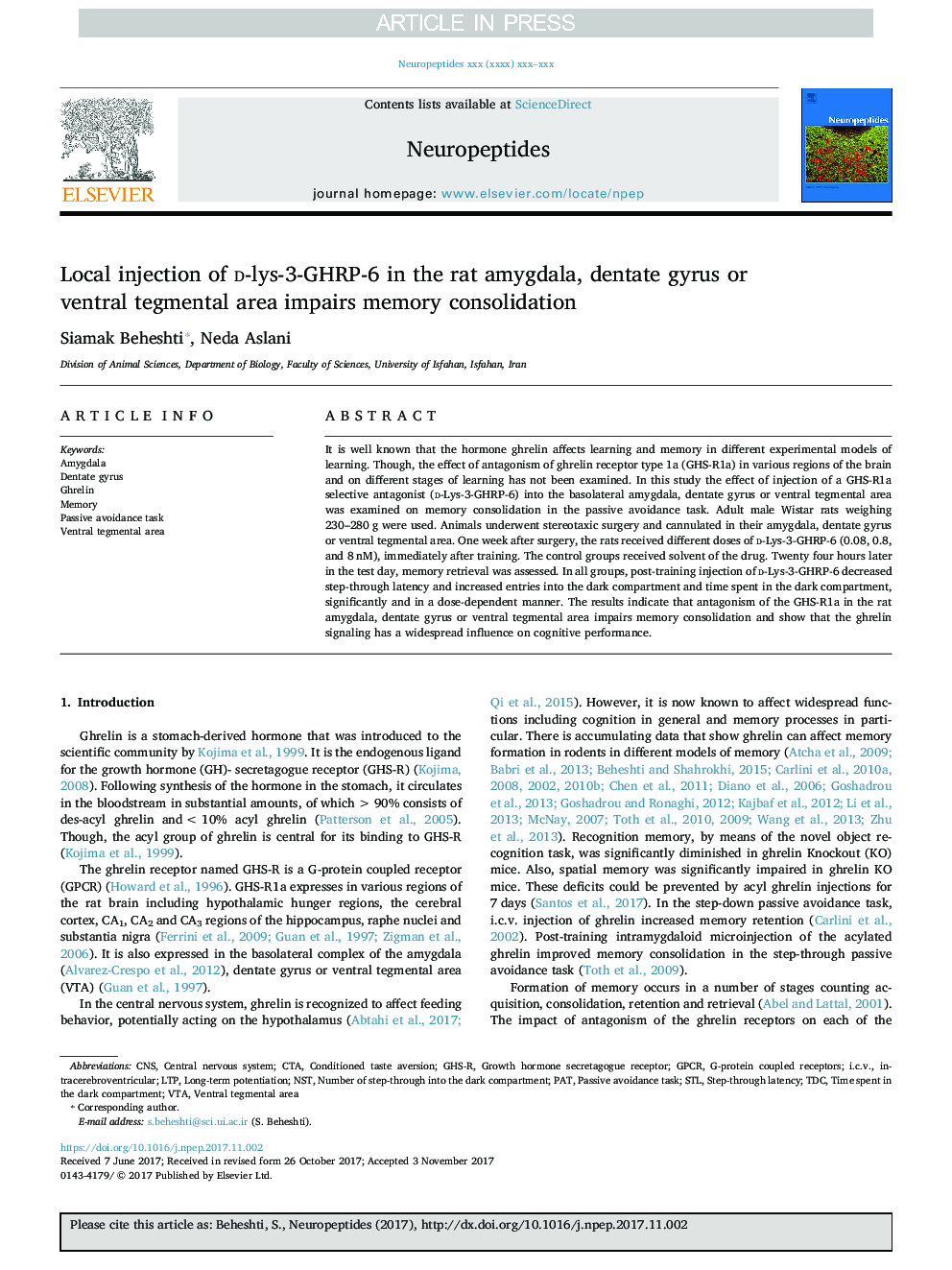| Article ID | Journal | Published Year | Pages | File Type |
|---|---|---|---|---|
| 8633312 | Neuropeptides | 2018 | 7 Pages |
Abstract
It is well known that the hormone ghrelin affects learning and memory in different experimental models of learning. Though, the effect of antagonism of ghrelin receptor type 1a (GHS-R1a) in various regions of the brain and on different stages of learning has not been examined. In this study the effect of injection of a GHS-R1a selective antagonist (d-Lys-3-GHRP-6) into the basolateral amygdala, dentate gyrus or ventral tegmental area was examined on memory consolidation in the passive avoidance task. Adult male Wistar rats weighing 230-280Â g were used. Animals underwent stereotaxic surgery and cannulated in their amygdala, dentate gyrus or ventral tegmental area. One week after surgery, the rats received different doses of d-Lys-3-GHRP-6 (0.08, 0.8, and 8Â nM), immediately after training. The control groups received solvent of the drug. Twenty four hours later in the test day, memory retrieval was assessed. In all groups, post-training injection of d-Lys-3-GHRP-6 decreased step-through latency and increased entries into the dark compartment and time spent in the dark compartment, significantly and in a dose-dependent manner. The results indicate that antagonism of the GHS-R1a in the rat amygdala, dentate gyrus or ventral tegmental area impairs memory consolidation and show that the ghrelin signaling has a widespread influence on cognitive performance.
Keywords
Related Topics
Life Sciences
Biochemistry, Genetics and Molecular Biology
Endocrinology
Authors
Siamak Beheshti, Neda Aslani,
